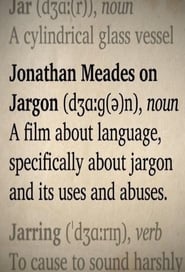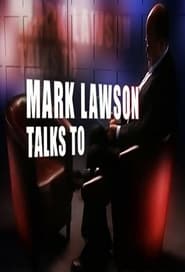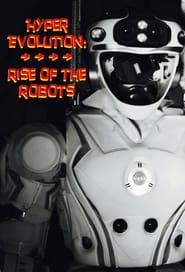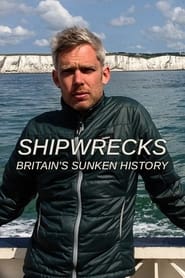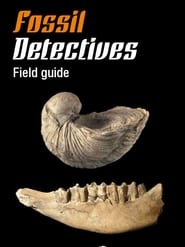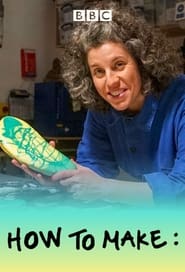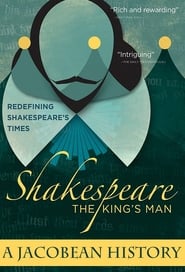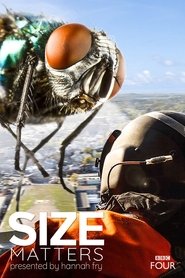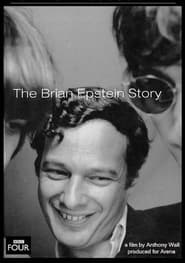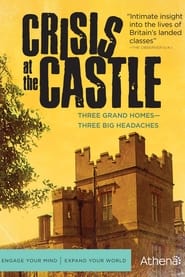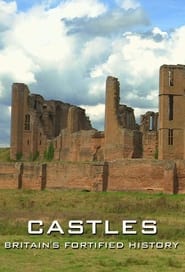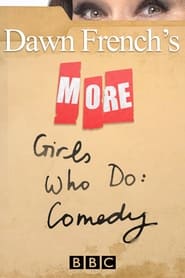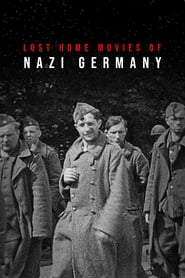Bbc Four TV Series - Page 16
-
Jonathan Meades on Jargon
2018
star 10In this provocative television essay, writer and broadcaster Jonathan Meades turns his forensic gaze on that modern phenomenon that drives us all up the wall - jargon. In a wide-ranging programme he dissects politics, the law, football commentary, business, the arts, tabloid-speak and management consultancy to show how jargon is used to cover up, confuse and generally keep us in the dark. He contrasts this with the world of slang, which unlike jargon actually gets to the heart of whatever it's talking about even if it does offend along the way. With plenty of what is called 'strong language', Meades pulls no punches in slaying the dragon of jargon. -
Mark Lawson Talks To
2003
star 6A series in which arts presenter Mark Lawson has a 60-minute in-depth conversation with a notable figure. -
Hyper Evolution: Rise of the Robots
2017
Evolutionary biologist Dr Ben Garrod and electronics engineer Professor Danielle George explore whether machines built to enhance our lives could one day become our greatest rivals. -
Lost Films of WWII
2019
Lost Films of WWII
2019
The story of what it felt like to live in Britain during World War II, told through the eyewitness accounts and cine films of ordinary people. -
Shipwrecks: Britain's Sunken History
2013
Maritime historian Dr Sam Willis looks at how and why the shipwreck came to loom so large in British history. -
Fossil Detectives
2008
Fossil Detectives
2008
Fossil Detectives is a 2008 BBC Television documentary series in which presenter Hermione Cockburn travels across Great Britain exploring fossil sites and discovering the latest scientific developments in geology and palaeontology. The show is a spin-off of Coast. -
India's Frontier Railways
2015
Three-part series about trains crossing borders in India, Nepal, Bangladesh and Pakistan, reconnecting families, cultures and history. -
Why Poverty?
2012
-
How to Make
2020
How to Make
2020
Zoe Laughlin, designer, maker and materials engineer, is fascinated by the science and technology hidden within the everyday objects we take for granted. In this series, she dismantles and dissects three classic items to understand the wonders of form, function and material that go into making them, before building her own truly bespoke versions, step by step. -
The King & the Playwright A Jacobean History
2012
Professor James Shapiro re-examines the work of Shakespeare during King James I's reign. -
Size Matters
2018
star 6Hannah Fry takes a spectacular look at the science of size by imagining a parallel world in which everything is made bigger or smaller. -
Britain's Great Gay Buildings
2017
star 87 celebrities champion 7 buildings that have played a key role in helping to define Britain's gay history. Presented by Stephen Fry. -
The Brian Epstein Story: The Sun Will Shine Tomorrow Part 1
0000
star 5Documentary on the life of Brian Epstein, the man who brought The Beatles to fame. First in a two-part documentary examining the turbulent life and career of Beatles manager Brian Epstein. Gay when homosexuality was illegal, a gambler, shopkeeper and failed actor, he was also pop king with a Midas touch who, in the 60s, was as well known as the band he managed. -
Tory! Tory! Tory!
2006
Tory! Tory! Tory!
2006
Tory! Tory! Tory! is a 2006 BBC television documentary series on the history of the people and ideas that formed Thatcherism told through the eyes of those on the New Right. It was nominated for the best Historical Documentary at the Grierson Awards in 2006. -
Crisis at the Castle
2007
Crisis at the Castle
2007
Three British aristocratic families struggle to hang on to their historic homes. Their lifestyle is assumed to be idyllic, but constant battle with roof-leaks, falling visitor numbers, and mounting debts all put pressure on their personal relationships and peace of mind. -
Castles: Britain's Fortified History
2014
star 10Historian Sam Willis traces the story of Britain's castles and their unique role in our history, art and literature. -
Monsoon Railway
2007
Monsoon Railway
2007
Director Gerry Troyna, painting an affectionate portrait of the Indian railway culture. -
More Dawn French's Girls Who Do: Comedy
2006
Dawn French, interviews her favorite comediennes and asks about their upbringing, family life, entree into comedy, routines for generating material, whether they hang out with other funny people, comedic influences, professional jealousy and how being funny affects one's love life. The series began as three episodes comprised of clips from 36 interviewees, but returned four months later with these six full-length interviews of Whoopi Goldberg, Catherine Tate, Kathy Burke, Julie Walters, Victoria Wood and Joan Rivers. —Samb Hicks -
Lost Home Movies of Nazi Germany
2019
star 6.7A candid look at what life was really like for those living in, and under Hitler's Swastika - at home - and abroad, a record not only of what they saw, but of what they knew.
